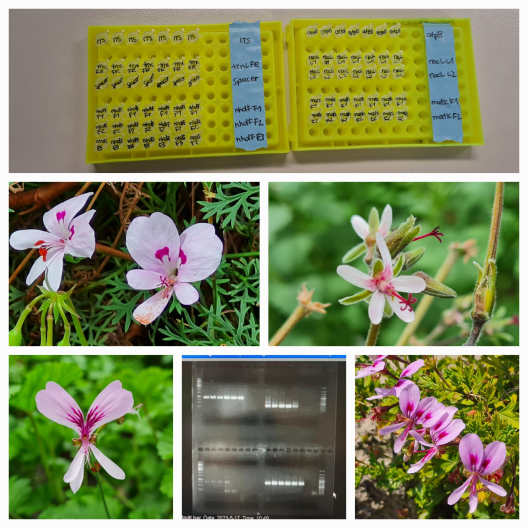


Current work:
My academic journey has fostered a deep interest in evolutionary biology, with a particular focus on plant phylogeny.
For my Master’s thesis, my research centers on the phylogeny of the genus Pelargonium (Geraniaceae), aiming to decipher intrageneric relationships among its species. This work involves sequencing unexamined taxa from the research plant collection at the Botanical Garden Münster and applying comparative phylogenetic methods, specifically the Supermatrix and Supertree (ASTRAL-III) approaches, to optimally define the relationships within the genus’s evolutionary tree. In parallel, I am analyzing the predicted impact of climate change on the natural habitats of Pelargonium, assessing the species’ risk of endangerment.
Education:
During my studies at the University of Münster, I pursued a Bachelor of Science in Biology and Chemistry as part of the “Zwei-Fach-Bachelor” program, followed by a Master of Science in Biosciences. In addition, I am actively participating in the Special Study Program "Evolution" at the Institute for Evolution and Biodiversity (IEB).
My Bachelor's thesis explored the future potential of zinc-phytoremediation in Germany, focusing on two zinc-hyperaccumulators: Anthyllis vulneraria and Noccaea praecox. This work allowed me to investigate how these plants can be used for environmental remediation of contaminated soils and they provided valuable insights into plant-soil-interactions.
Beyond these specific research projects, I have a broader interest in carnivorous plants, particularly their environmental interactions and evolutionary relationships.
This area continues to be a source of fascination as I expand my understanding of plant adaptations and ecological dynamics.
